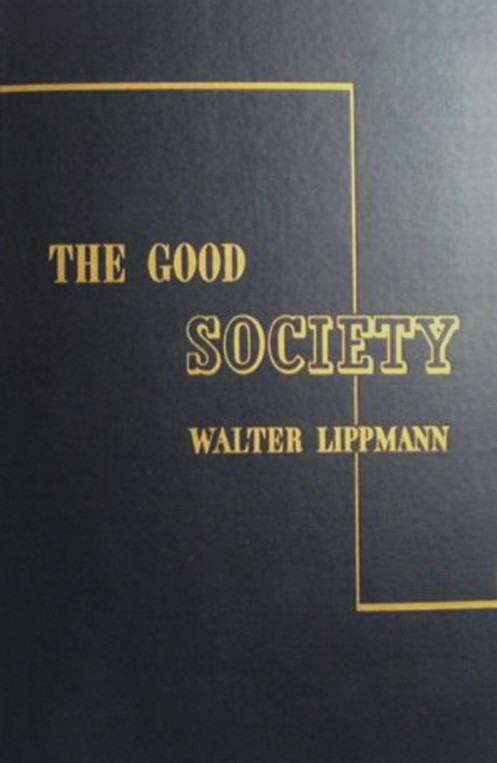Walter Lippmann: The Good Society (1937)
Filed under book | Tags: · collectivism, economy, law, liberalism, liberty, politics, society, totalitarianism

The Good Society is a critical text in the history of liberalism. Initially a series of articles published in a variety of Lippmann’s favorite magazines, as the whole evolved, it became a frontal assault against totalitarian tendencies within American society. Lippmann took to task those who sought to improve the lot of mankind by undoing the work of their predecessors and by undermining movements in which men struggle to be free. This book is a strong indictment of programs of reform that are at odds with the liberal tradition, and it is critical of those who ask people to choose between security and liberty. The Good Society falls naturally into two segments. In the first, Lippmann shows the errors and common fallacies of faith in government as the solution to all problems. He says, “from left to right, from communist to conservative. They all believe the same fundamental doctrine. All the philosophies go into battle singing the same tune with slightly different words.” In the second part of the book, Lippmann offers reasons why liberalism lost sight of its purpose and suggests the first principles on which it can flourish again. Lippmann argues that liberalism’s revival is inevitable because no other system of government can work, given the kind of economic world mankind seeks. He did not write The Good Society to please adherents of any political ideology. Lippmann challenges all philosophies of government, and yet manages to present a positive program. Bewildered liberals and conservatives alike will find this work a successful effort to synthesize a theory of liberalism with the practice of a strong democracy.
Publisher Little, Brown and Company
433 pages
Jacques Ellul: The Technological Society (1954/1964)
Filed under book | Tags: · bourgeoisie, critique of technology, economy, fascism, machine, politics, production, propaganda, technique, technological society, technology, totalitarianism

As insightful and wise today as it was when originally published in 1954, Jacques Ellul’s The Technological Society has become a classic in its field, laying the groundwork for all other studies of technology and society that have followed. Ellul offers a penetrating analysis of our technological civilization, showing how technology–which began innocuously enough as a servant of humankind–threatens to overthrow humanity itself in its ongoing creation of an environment that meets its own ends. No conversation about the dangers of technology and its unavoidable effects on society can begin without a careful reading of this book.
Originally published in French as La technique ou l’enjeu du siècle by Librairie Armand Colin, 1954.
Translated by John Wilkinson
With an introduction by Robert K. Merton
Publisher Vintage Books, a divisio of Random House, New York, 1964
449 pages
wikipedia
publisher
google books
Laurier Rochon: The Dictator’s Practical Internet Guide to Power Retention (2012)
Filed under booklet | Tags: · internet, politics, power, social media, totalitarianism

The goal of this guide is to provide leaders of authoritarian, autocratic, theocratic, totalitarian and other single-leader or single-party regimes with a basic set of guidelines on how to use the internet to ensure you retain the most power for the longest time. The best way to achieve this is to never have your authority contested. This guide will accompany you in the obliteration of political dissidence. By having everyone agree with you, or believe that everyone agrees with you, your stay at the head of state will be long and prosperous.
Self-published, June 2012, Rotterdam, The Netherlands
55 pages
PDF
View online (HTML)

